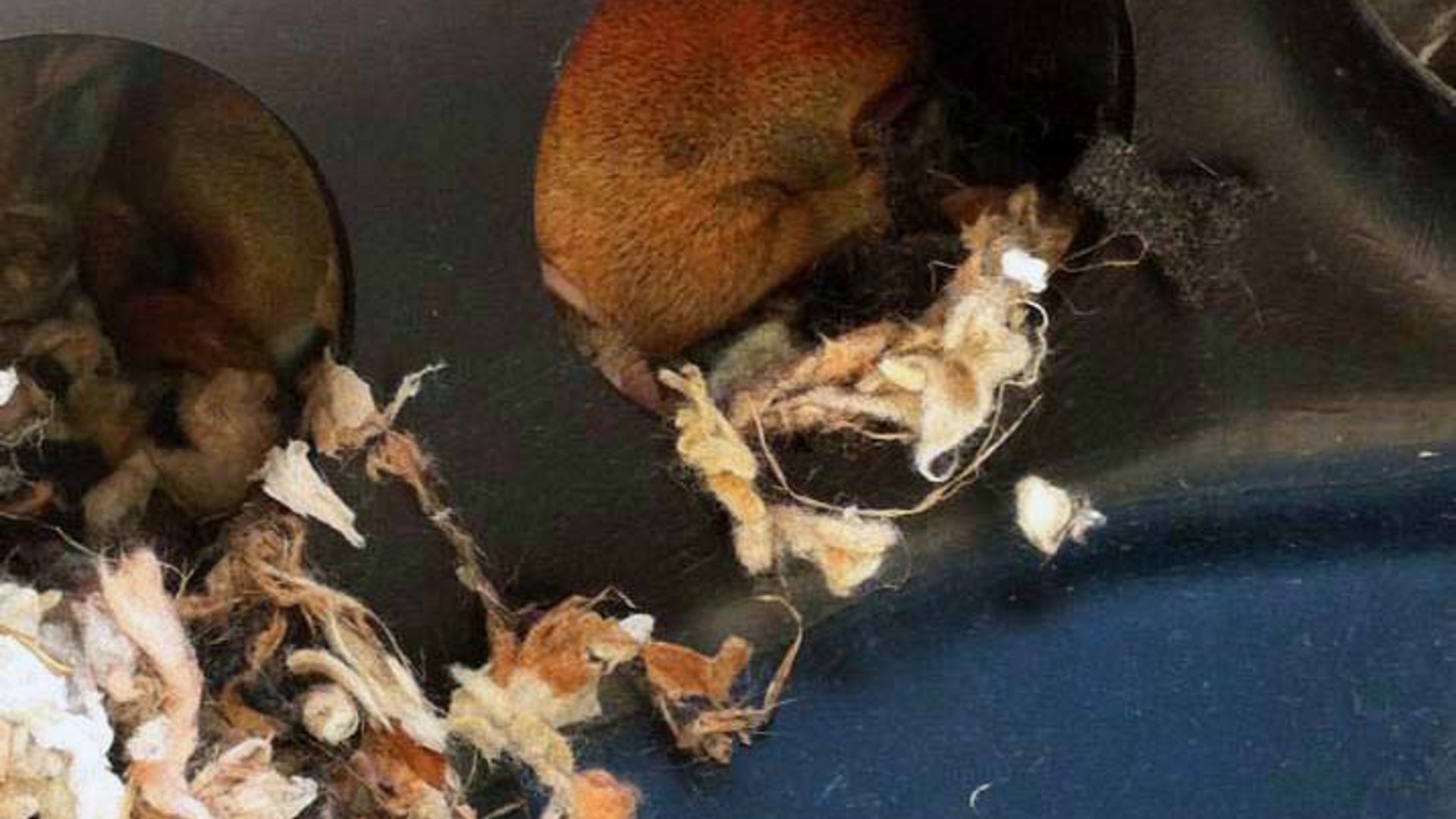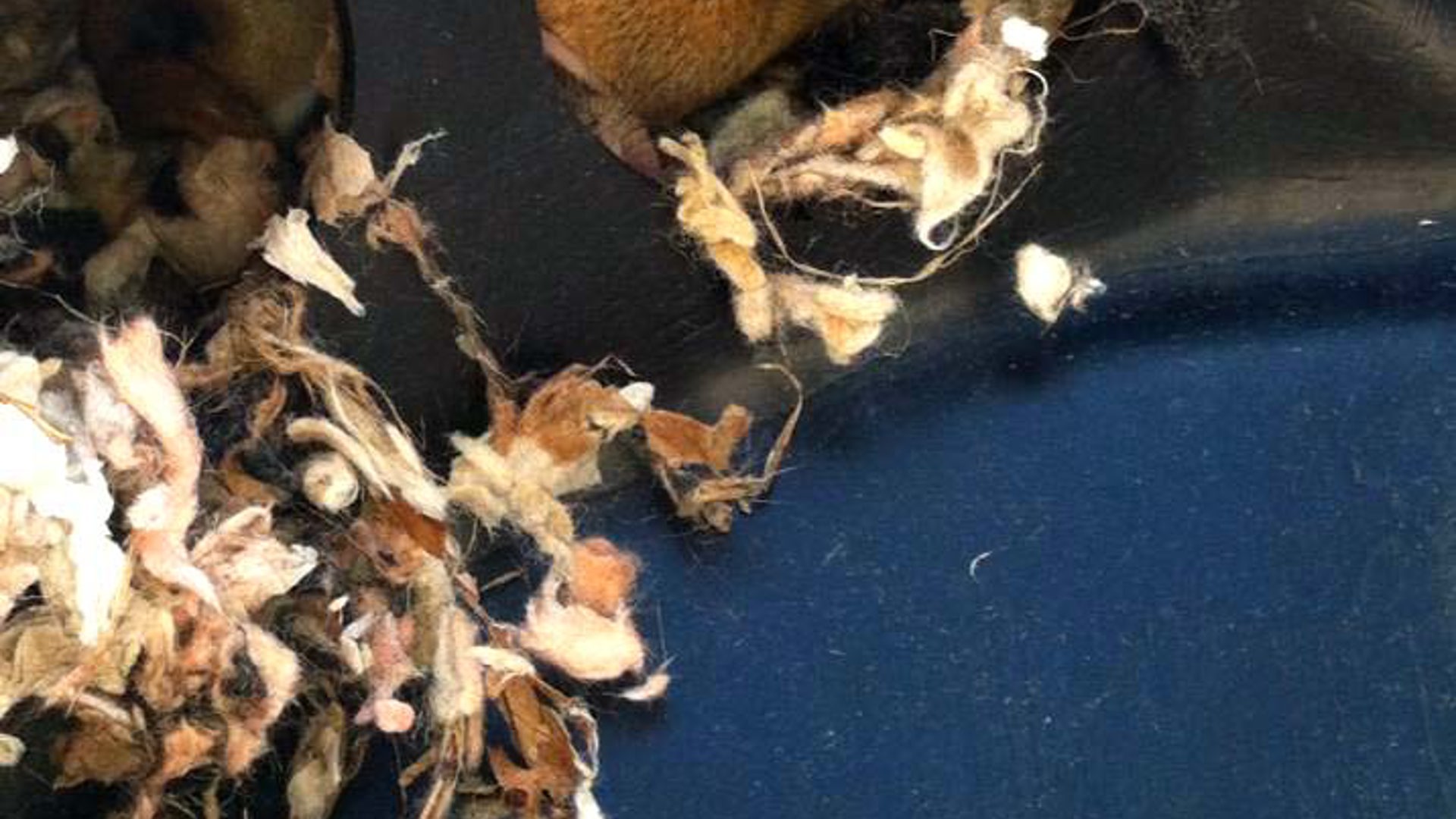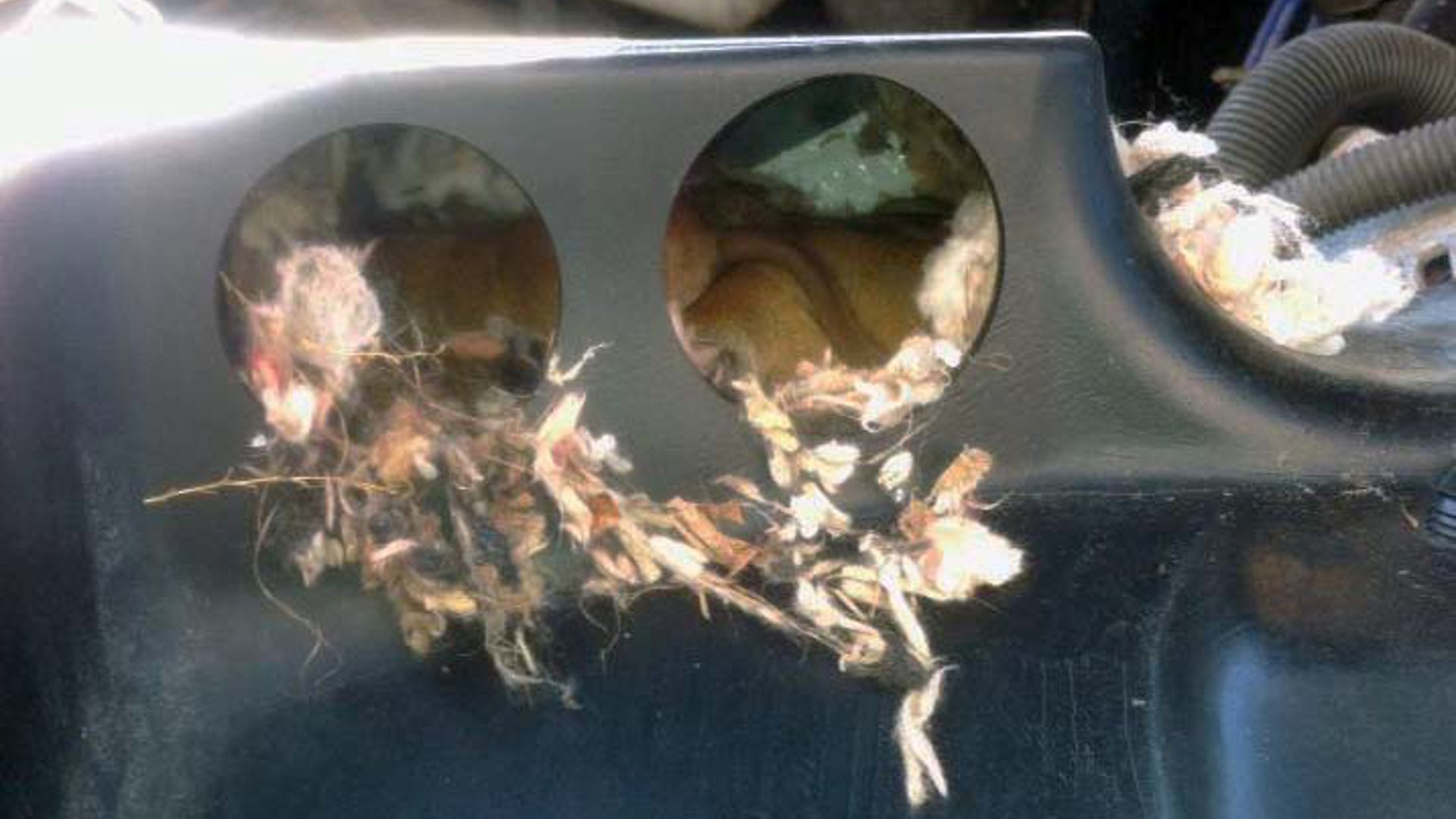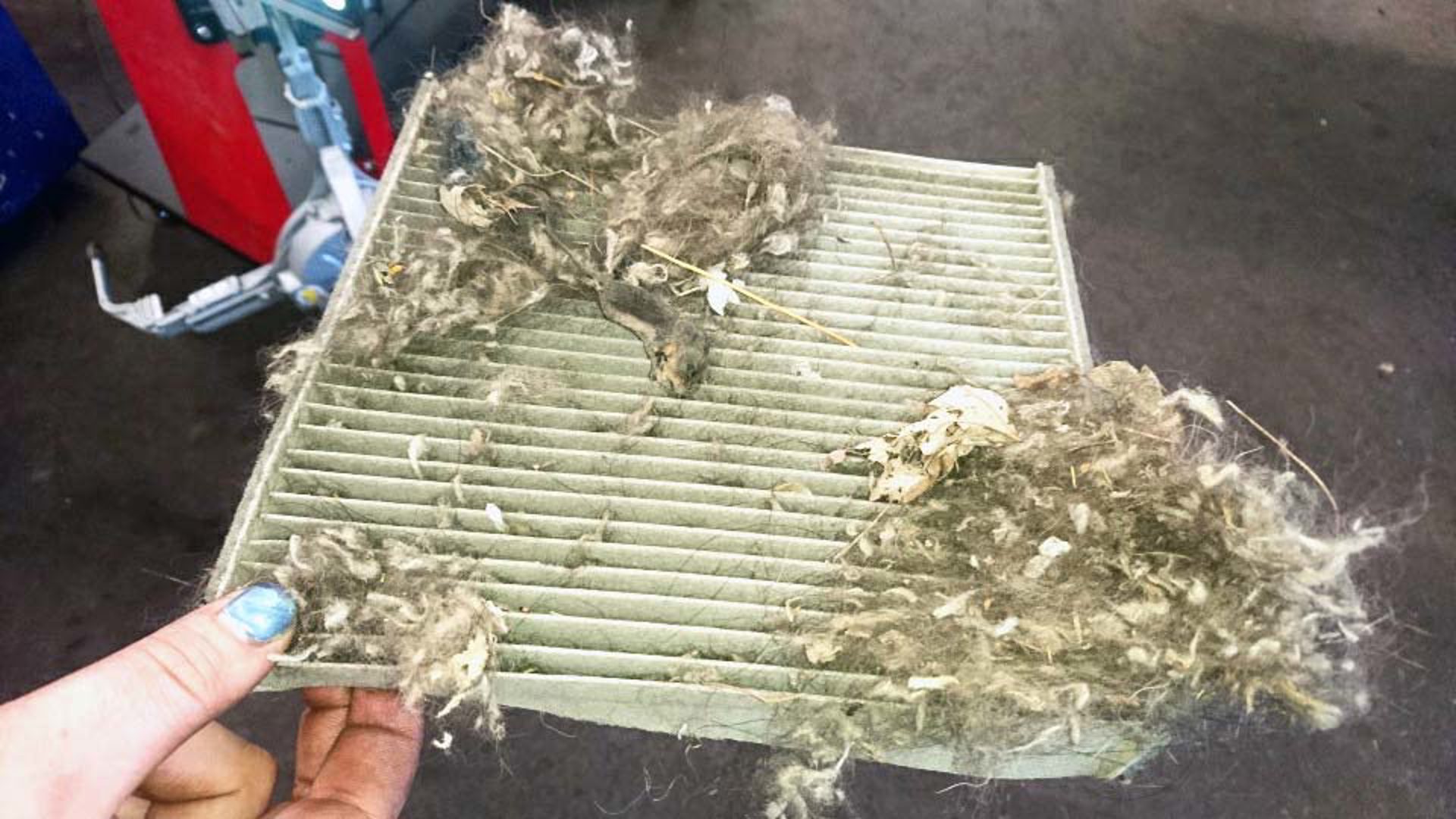Welcome to Goof of the Month! Every month, we highlight a story or situation that reinforces the need for drivers and shoppers to understand their vehicle, how to maintain it, and how it works.
This month’s story comes to us from John Kennard, an automotive technician in Mississauga, Ontario. This time around, Kennard shares a simple story that reinforces the importance of regularly checking your vehicle’s replaceable parts, including its all-important air filter. It also highlights one of many problems that can result should a rodent of some sort take up residence inside of your ride – which is common this time of year.
The Complaint
Kennard had a customer with a Honda Accord that was acting strangely. “The customer was complaining that the car was performing poorly, getting lousy mileage, and lately, had begun to run roughly, smell like gas, and had popped up with a Check Engine Light (CEL).
Kennard said he sees symptoms like this fairly often, and a number of causes are possible.
“When there’s a CEL, we do with a scan of the engine’s computer, which reveals the problem area very quickly,” he said. “Oftentimes, it’s some combination of a bad sensor, bad plugs, or a fuel-system issue.”
But to Kennard’s surprise, this particular Accord was experiencing problems at an early point in its life.
“This was a pretty new car,” he said. “We hadn’t met this customer before, but the car was in great shape, just a few years old, and it had low miles.”
Kennard started with a road test, to see if he could experience the symptoms the customer had described.
He did.
“This Accord was running horribly,” he said. “It had trouble starting, trouble maintaining its idle speed, and felt really sluggish when the throttle was applied. This was all apparent right away – it wasn’t a very long road test,” he added.
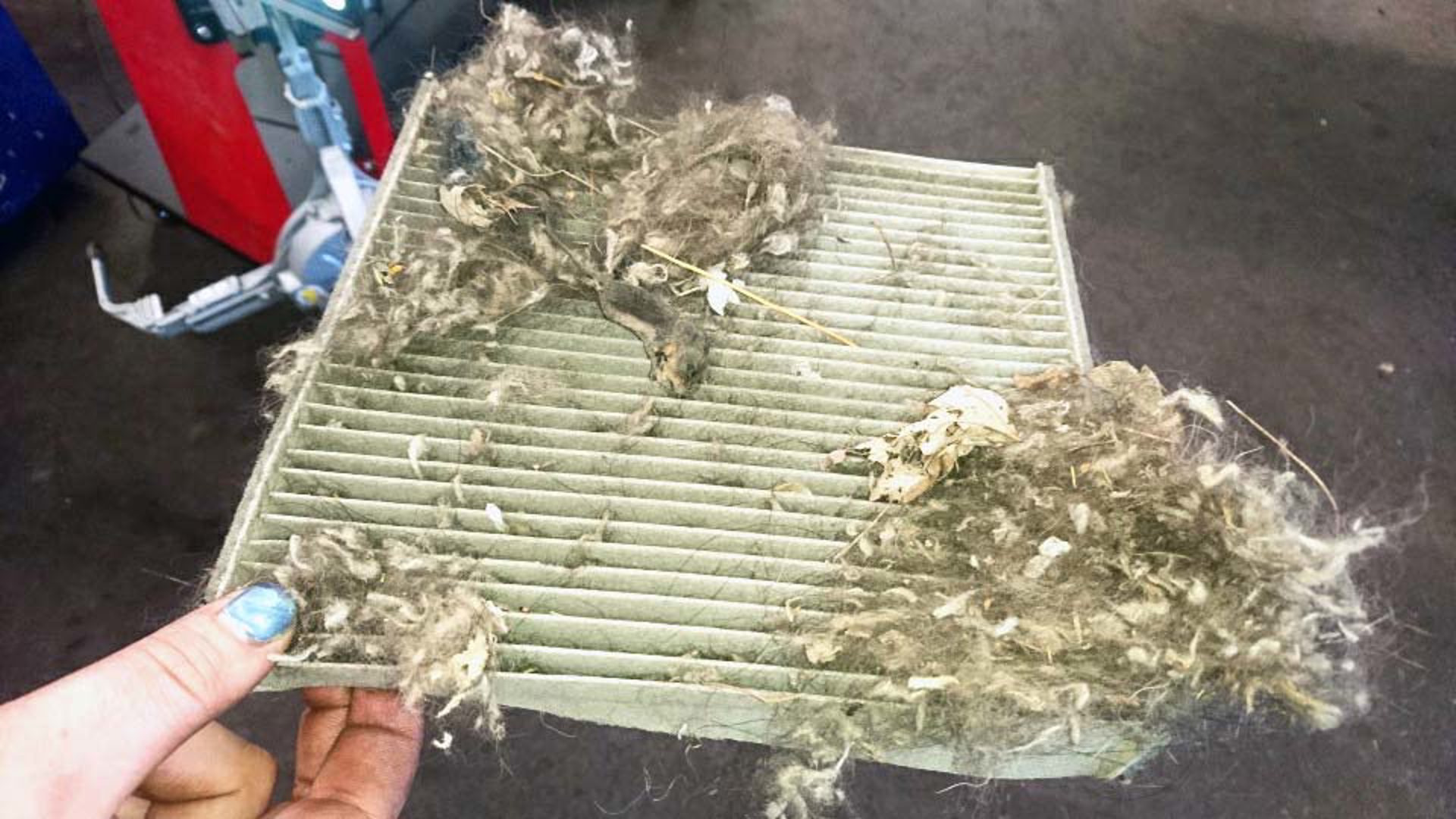
After a diagnostic scan, Kennard had a hunch. “We saw trouble codes referencing the air intake sensor, which I don’t usually expect on vehicles this new. There was also a trouble code for engine misfire, and a faint smell of gasoline, but no obvious leaks.”
Kennard said that these symptoms could have numerous unrelated causes, but were perplexing on a vehicle this new. Still, based on over 20 years of experience repairing vehicles, he suspected the engine’s air filter might be badly clogged.
Kennard asked the customer if they bought the vehicle new, and where it had been serviced in the past few years. The customer had owned the vehicle for three years since new, and since then, had only had oil changes performed at a nearby quick-lube shop – though not often, given the vehicle’s low mileage.
Then, Kennard asked the customer when they last had their air filter changed. The customer asked what an air filter was.
“This is a sure sign that the air filter needs to be changed,” he said. “It’s funny how many people don’t read their owners manuals, and don’t know that parts like an air filter need changing.”
So, Kennard opened the Accord’s airbox for a better look at the filter, and discovered a disgusting surprise.
“It wasn’t very nice,” he laughed. “Inside of the airbox was a pile of debris, dead bugs, and what was left of a little critter. It looked like the poor thing had been in there a good while. Pretty much all that was left was a skeleton, and some fur. But there was also a whole ecosystem growing in the airbox, too.”
Apparently, some time ago, a chipmunk or mouse had found its way into the Accord’s airbox and decided to make a nest. That creature brought seeds, hair, bits of paper, and other bedding into the airbox with it, and made a cozy little home right under the air filter. It also nibbled on the air filter, which is made of paper, and left a small tear that allowed contaminants to pass through it.
Eventually, the creature died – and other insect life arrived to munch on the remains. Then, spiders arrived to munch on those insects. The result? The Accord’s airbox contained a compromised air filter that was almost totally clogged with leafs, paper bits, hair, dead bugs, spider egg casings and webs, and decomposed rodent bits, as well as rodent hair. There were also signs of maggots and other insect larvae.
But a vehicle airbox is a noisy place which often has a current of air flowing through it. Hence Kennard’s surprise that so many creatures were inside, in varying states of decay.
“Interesting that all of this life took up a place inside the airbox,” Kennard commented. “I wasn’t sure how all the dead bugs and spiders didn’t just get sucked up into the filter. I also asked the customer if they had a bird feeder near the vehicle, which they did. There was a good amount of bird seed in the airbox, along with everything else.”
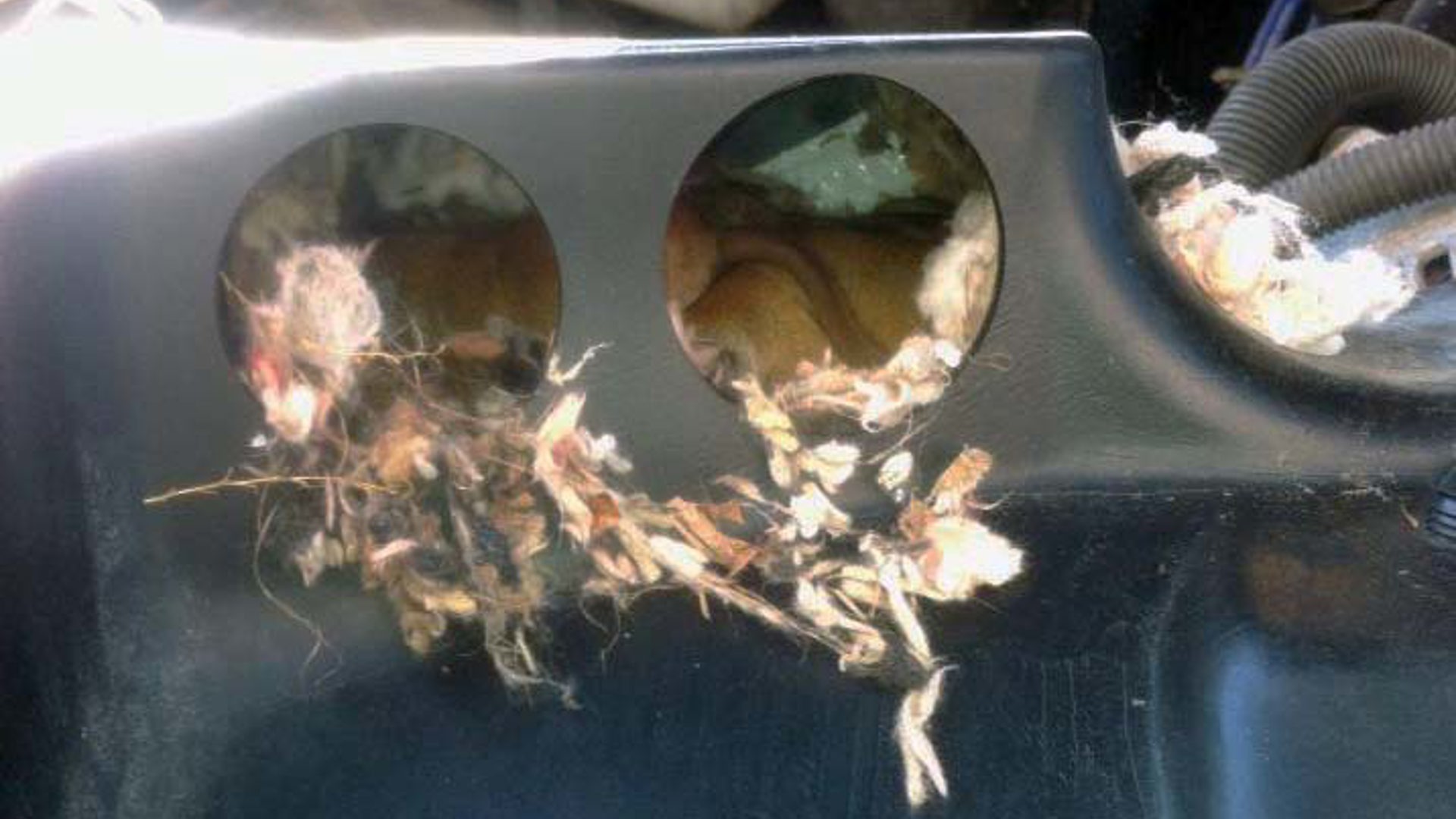
The customer, who turned down Kennard’s offer to see the inside of the airbox, had a simple explanation.
They’d taken up a new job about a year ago, and that new job included a company vehicle. The Accord was then parked, unused, in the carport next to the customer’s house. It’s likely that the rodent had nested, died, decomposed, and attracted other insect life into the airbox during the extended period of non-use, and that the whole mess got sucked up into the air filter when a family member started using the Accord, on occasion, a few weeks before it arrived at Kennard’s shop.
The Outcome
Kennard replaced the air filter, and told the customer that, rodent and insect infestation or not, this part needed to be changed every so often. The customer agreed, though they said they weren’t likely to ever open another vehicle airbox themselves, after hearing what was inside of this one. Kennard also removed, cleaned, and replaced the air intake sensor, which had some debris stuck to it. Presumably, it was drawn upstream past the damaged air filter and messed with the sensor.
The misfire code and smell of gas? Kennard explains, “This engine was suffocating, which is why the performance and smoothness had disappeared, and why it was using so much more fuel than usual. When a filter is really badly clogged, it can drastically affect the engine’s ability to run properly and burn its fuel, which can cause a misfire. I’ve seen some pretty bad air filters, and this was one of the worst.”
Kennard cleared the trouble codes referenced by the Check Engine Light, told the customer to call him if the CEL came back on, and sent the vehicle on its way with a clean air filter. The customer called back a few days later to thank Kennard, and tell him that the vehicle was running smoothly once again.
Lesson Learned
An uneducated customer, combined with the fact that this vehicle had been parked for an extended period, meant that it hadn’t been subjected to a regular air filter inspection that would have revealed this problem early on.
Just remember – your vehicle can make an appealing place for a rodent to live, and especially if it’s parked outdoors, near food sources, and not driven frequently. Keep the area in and around your ride clean and free of rodent food sources, and consider adding rodent deterrents to your ride’s surroundings if you’ll be parking it for a while. It could save you a yucky trip to the shop.
Photographs are not of the vehicle in question and are for illustration only. (Yes, it happens more often than one might hope.)
